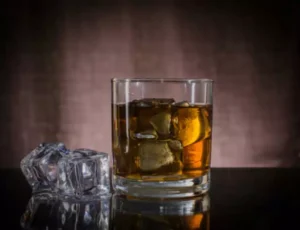
Mental health experts suggest that while alcohol may initially provide a sense of relief or relaxation, it can exacerbate anxiety symptoms over time. Caffeine can intensify anxiety, especially when combined with alcohol. Limiting caffeine intake, particularly before and after drinking alcohol, can help reduce anxiety symptoms. As the effects of alcohol wear off, individuals may experience heightened anxiety, creating a cycle of dependence.
Long-term risks

It throws off the balance of the hormones and brain chemicals that control our moods and emotions. Over time, alcohol decreases production of the neuro-transmitter GABA (a chemical in our brain that helps us feel relaxed). Research has found that anxiety disorders and alcohol use disorders often occur together. Several proposed explanations exist for the link, including genetics, a person’s environment, and the brain mechanisms related to addiction and anxiety symptoms. The relationship between alcohol use and anxiety is complex and multifaceted.
- Discuss these concerns with your doctor first to see if alcohol is safe for you.
- At Talkiatry, we specialize in psychiatry, meaning the diagnosis and treatment of mental health conditions.
- Alcohol-induced anxiety is the uncomfortable feeling that can happen after drinking heavy amounts of alcohol.
Treatment options for anxiety
- About 3.1% of the U.S. population is affected by generalized anxiety disorder, according to the Anxiety & Depression Association of America.
- Both carbamazepine and clonidine act at the alpha-2 adrenoceptors level and could counteract the hyperadrenergic state that has been reported during discontinuation of alprazolam.
- Whether or not you drink, your panic attacks need to be addressed separately.
Alprazolam withdrawal syndrome may also feature unique clinical symptoms compared with other benzodiazepine withdrawal syndromes. Interestingly, despite ICU care and administration of beta-blockers and alpha-blockers, the pseudo-pheochromocytoma was only successfully treated by alprazolam re-instatement (Orzack et al., 1988). Most studies conducted to assess benzodiazepines misuse liability in head-to-head comparisons are more than 20 years old. Alprazolam is a high-potency triazolobenzodiazepine that is US Food and Drug Administration (FDA)-approved for the treatment of anxiety and panic disorders. Alprazolam is biotransformed by hepatic microsomal oxidation, yielding 4 and α-hydroxyalprazolam as its principal metabolites, and is metabolized by cytochrome P450 (CYP) 3A4 (Greenblatt and Wright, 1993).
Health Categories to Explore

Research shows that people with alcoholism find it difficult to recover from traumatic events. This is possibly because of the effects of alcohol abuse, which can actually change brain activity. It can help individuals maintain sobriety while addressing underlying anxiety issues. Alcoholics Anonymous and other 12-step programs can be beneficial for some individuals. Excessive caffeine consumption can disrupt sleep patterns, further contributing to anxiety.

This can be dangerously addictive if you have frequent anxious thoughts. This type of self-medication can lead to does alcohol trigger panic attacks alcohol dependency and may result in regular, alcohol-induced panic attacks. Alcohol may be a temporary, unhealthy way to relieve anxiety and forget about your underlying stressors; however, using alcohol does not erase these underlying triggers. Additionally, symptoms of anxiety will still be lurking around the corner as the underlying triggers have not been properly addressed and treated.


